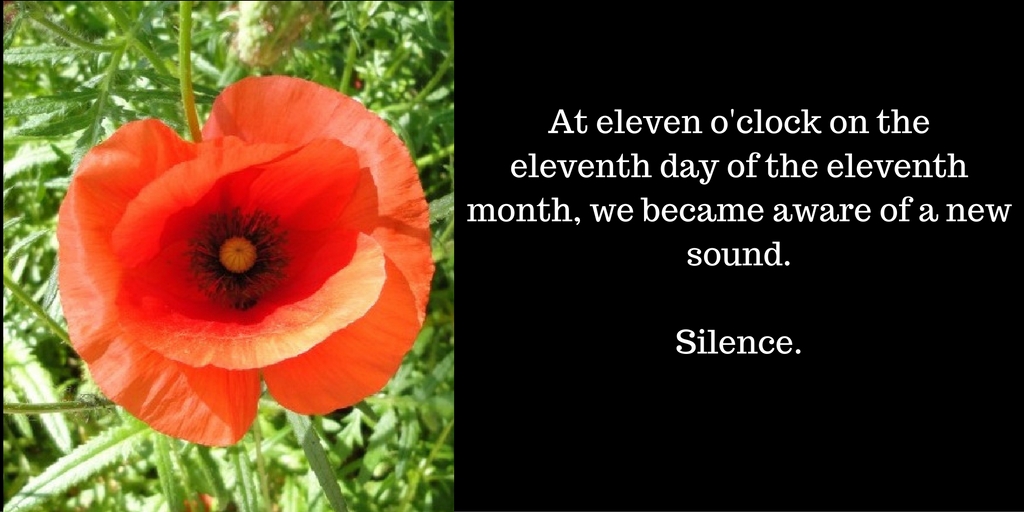
At 11 am on this day in 1918, the guns fell silent on the Western Front. Ninety-nine years later, none of the combatants in that terrible war is alive, but the memories still echo down the years. In France, where I live, the smallest village has its war memorial. Often, several men with the same surname appear in the list: death cut a swathe through many families. Few were unaffected.
Both world wars still weigh heavily on the French psyche in particular, but 11th November, Armistice Day, has come to symbolise the losses of soldiers and citizens in all wars.
Personal accounts
Only a handful of people are alive now who lived through World War I and they would have been too young at the time to know much about it. We can probably gain only a distorted view of how things were, not only in the trenches, but also in the towns and countryside. The many personal accounts, such as diaries and letters, can help to lift the veil a little to give us a glimpse of how it was, at a century’s distance.
In my recently-published collection of stories inspired by and set in France, French Collection, I have drawn on contemporary accounts to provide the background to the three stories set in World War I. ‘Bertie’s Buttons’, for instance, was inspired by the Christmas Truce of 1914, and informed by letters and newspaper reports of the time.
World War I ghosts
There are several accounts of ghosts appearing on the battlefields or to their relatives following their death. One of the more famous stories concerns the poet Wilfred Owen, who was killed in action on 4th November 1918, a week before the armistice. His brother Harold, serving on a ship off the coast of Africa, entered his cabin on 11th November to find Wilfred sitting there. Harold had not yet heard the news of his brother’s death.
I was also fascinated to read a number of accounts by soldiers who claim to have seen dead comrades wandering around. Among other ghost myths that arose during the war, this gave rise to the idea that they were somehow held there by their companions’ memories. In turn, this gave me the idea for my story ‘Remembrance’, about a British Tommy whose ghost is condemned to stay at the scene of his death until his comrade can let him go.
World War I continues to provide inspiration for fiction. We authors should not trivialise the memories of those who died, but perhaps we can, in our way, help to commemorate them.

You might also like:
True Inspiration for Fiction #1: the Christmas Truce 1914
True Inspiration for Fiction #4: Angel Makers
Nursing in World War I: the French Experience
Copyright © Vanessa Couchman 2017, all rights reserved
2 thoughts on “True Inspiration for Fiction #5: the Ghosts of World War I”